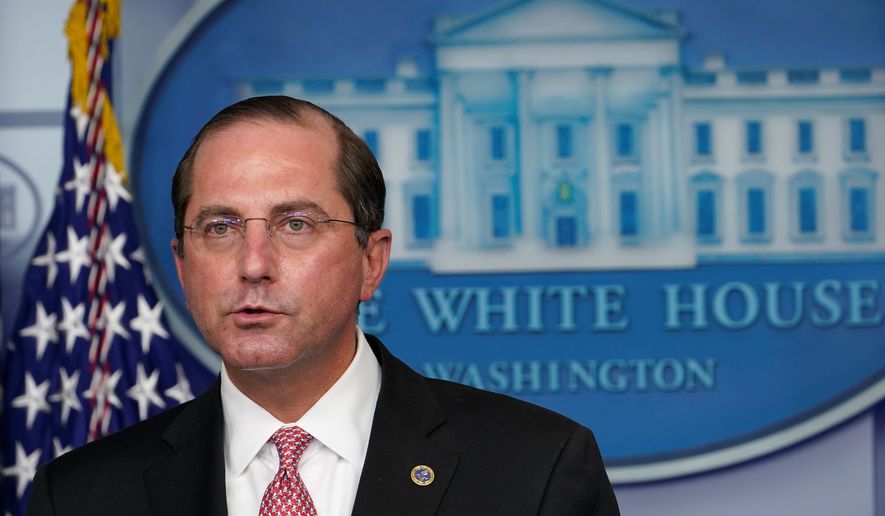The U.S. government is on pace to approve two COVID-19 vaccines by Christmas, prompting officials to double down on safety promises and highlight eye-popping data from Pfizer and Moderna as they try to overcome lingering skepticism and get those shots into actual arms.
Polling taken before the election showed a skittish American public, with large shares saying they wouldn’t want to take a vaccine approved before Election Day.
But the Food and Drug Administration demanded extra safety data, stretching the process beyond the campaign season, and companies leading the race for a vaccine reported their shots were 95% effective in late-stage trials, suggesting a big payoff for recipients and society at large.
A new Axios-Ipsos poll says over half of Americans are now ready to take a first-generation vaccine right away, and 65% are likely to get it if pharmaceutical companies say they’re over 90% effective.
“We saw ever-increasing numbers of potential vaccine hesitancy in previous months. Unfortunately, there was a lot of rhetoric out there that was not helpful in terms of inspiring confidence in the process,” Health Secretary Alex M. Azar II said at a recent vaccine briefing, an allusion to Democrats who claimed Mr. Trump would interfere in the process.
He said the Trump administration has been clear about keeping the process politics-free and the “proof is in the pudding,” with data-monitoring boards maintaining the sanctity of trials, drug companies outlining their procedures and the career officials working with outside panels to review the vaccines.
“We have seen since the Pfizer and Moderna data have come out with such exceptional results, and of course with the passing of election — we have seen increases in vaccine acceptance among people. We obviously remain concerned, especially in various underserved communities, about any concerns of vaccine hesitancy,” Mr. Azar said.
Companies were able to enroll sizable representation from people of color during clinical trials of the vaccine — an important step in gaining trust — though there is ample work to do, according to polling that shows Black and Hispanic Americans remain the most leery of a vaccine.
Only 14% of Black Americans and 34% of Latinos trust that the vaccine to be safe, according to a new survey from Langer Research Associates. And in Michigan, a survey taken this month found only half of Black residents were somewhat likely or very likely to get a vaccine if it becomes available, compared to 62% of White residents.
Mr. Azar said the Centers for Disease Control and Prevention is working on a public-service campaign to educate people on the safety of the vaccine and need to get vaccinated, especially among hard-hit populations.
Notably, an advisory panel to the CDC this week said it is leaning toward prioritizing essential workers — besides those in health care — before people over 65 and those with underlying health conditions. The idea is to protect people who cannot shelter from the virus and to build uptake among minority populations who fill an outsized share of these jobs.
The Langer survey pointed to lagging trust in the government in the Black community, particularly due to “historical trauma” from such events as the Tuskegee Syphilis Study on Black men in the mid-20th century. The survey said the best messengers will be people close to home in the community.
“You have to change attitudes, and to change attitudes you’re going to have to work closely with leaders — business leaders, religious leaders,” said William Schaffner, an infectious-diseases specialist at Vanderbilt University.
He said personal messaging from, say, a pastor will be important in getting people to return for a second dose of the vaccine. Initial doses will likely result in sore arms or other mild side effects, so community leaders should describe how they felt the same things and it was normal.
Drug companies, meanwhile, may have improved prospects for uptake by releasing their clinical protocols and signing a collective statement that said any vaccine would be steered by science, not politics.
“I think it was very important that the CEOs of the major companies got together,” Dr. Schaffner said. “That helped enormously and probably gave some backbone to the Food and Drug Administration and the CDC.”
Moving forward, the phased-in approach of the rollout should help build confidence. Millions of health workers and other essential employees are scheduled to take up the vaccine before the rollout extends to vulnerable people and the general public.
“Hopefully there’s a positive experience for individuals and that by word of mouth — in addition of course to all of the education efforts — we continue to reduce vaccine hesitancy,” Mr. Azar said. “I will get myself vaccinated, as soon as I will be allowed to be vaccinated, to demonstrate to the American people my complete confidence in the independence and integrity of the process and the quality of any vaccine that I would make available to the American people.”
• Tom Howell Jr. can be reached at thowell@washingtontimes.com.




Please read our comment policy before commenting.